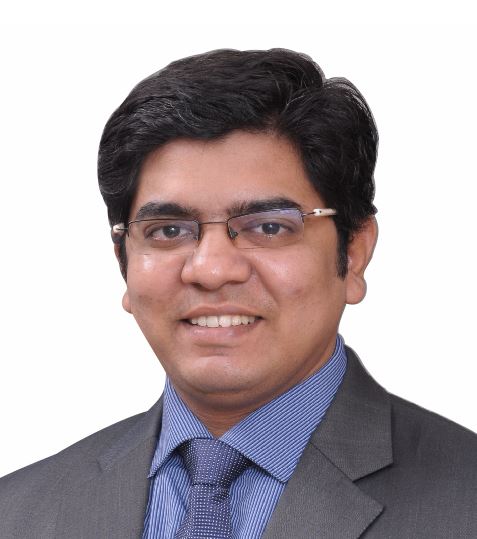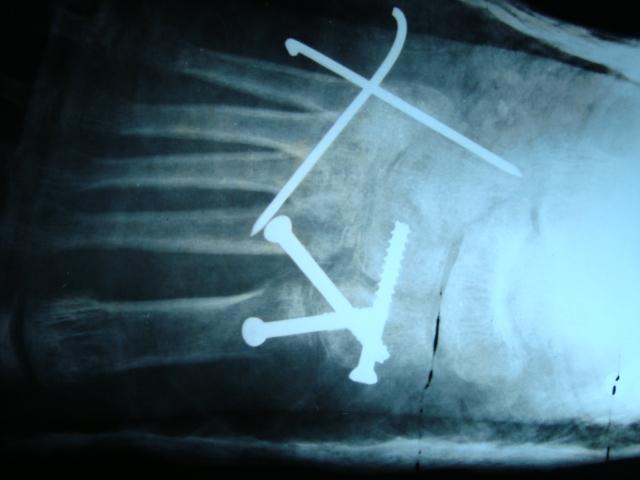Editorial
Volume 4 | Issue 4 | JOCR Oct – Dec 2014 | Page 1-2 | Shyam AK DOI: 10.13107/jocr.2250-0685.211
Social Media and Orthopaedic Surgeon: Concept of Orthopaedic Educational and Academic Network (OCEAN)
Author: Ashok Shyam Editor – Journal of Orthopaedic Case Reports. Email: drashokshyam@yahoo.co.uk
Social Media is any online forum where the reader is been given the rights to contribute through his comments or opinions or even rights to add completely new content. That would be the simplistic definition and once you ponder on it, we will realise that Journals have been doing the same for years. Authors can submit content (articles) and even comments on others content (letter to editor) and have an academic interaction, but with advent of web 2.0 this process is greatly enhanced. Also the forum where such interactions can happen have grown rapidly. The simplistic scenario would be websites where content is actually generated by the readers and a community of editors for example Wikipedia. Such ventures have grown successful largely due to massive collaboration among individuals who had passion to share their knowledge, views and perspectives. Huge knowledge banks have grown in last decades and these have now been quoted as reliable sources of information. Same has happened to medical field to some extent inform of websites like Medscape and other similar websites where readers can readily apply to become authors and editors and add content to the websites. On other front there has been similar development on dedicated social media sites like Facebook and twitter. One of the major reasons for such development is academic Philanthropy. What do I mean by Academic Philanthropy? Well philanthropy is general means ‘love of humanity’ in the sense of caring, nourishing, developing and enhancing “what it is to be human”. In the same sense academic philanthropy for subject of Orthopaedics can be defined as ‘Love of Orthopaedics in the sense of caring, nourishing, developing and enhancing the Subject of Orthopaedics i.e. in short enriching Orthopaedics (which is also the tag line of Orthopaedic Research Group and JOCR). Thus in academic philanthropy members of a fraternity freely share their knowledge and their experiences with each other with aim to enrich the fraternity as a whole. Scientific Journals were started as platforms for such interactions to aid growth of the subject through research. However at some point of time the personal interactions almost died down with articles containing themselves into limitations of research methodology and statistics. Also practice of selling the articles (by the publishers) inhibits free sharing of knowledge and academic philanthropy. In this sense various social media platform can offer an alternative. Dr Mike Cadogen coined the term FOAM (Free Open Access Meducation) in 2012 and defines it as “the concept of harnessing the combination of altruistic practitioners with rapidly evolving technology in the setting of increasingly accessible broadband resources to create a network of Free Open Access Medical Education Resources.”[1] It means use of any technology to freely share academic knowledge. However this was not the first attempt and various such FOAM networks already existed. The one Network that the Indian Orthopaedic Research Group runs was started in 2010 as a closed Facebook group. It can be found on Facebook by typing “Indian orthopaedic research group” and looking under groups.[2] The group was started with the aim of bringing together orthopaedic surgeons from all fields of expertise and provide them a platform to share their knowledge and experiences. The forum’s opening lines are ‘Speak the Orthopaedic Language’ and that itself tells us a lot about it. As of now there are more than ten thousand six hundred orthopaedic surgeons from around the globe who have joined the group with more than 60 countries represented. The forum is based on principle of ‘Academic Philanthropy’ where Surgeons from all across the world share their experiences and expertise for improving the ‘Knowledge pool and add to improvement of patient management. Effective Knowledge based discussions with presentation of x rays, clinical pictures and videos which can be posted by any member of the Group. Regular Literature back up and articles are provided by the moderators and Research group on related topics. Healthy academic environment for case discussions with wide variety of cases ranging from simple cases to most complicated cases discussed. It offers a great learning experience especially to Orthopaedic Trainees and Post Graduate students. In addition the forum has regular announcements of Orthopaedic fellowships, conferences and important useful notifications useful to all orthopods. Features like ‘Article of the day’ with free access to full text articles, Case of the day and interactive discussions make this forum special and buzzing with activities. Many in forum have labelled their experience as of attending an online conference or a CME, however I would like to see it in a perspective similar to ‘FOAM’ where this can labelled as ‘OCEAN’ (OrthopaediC Education & Academic Network). OCEAN is an appropriate term as in concept it is trying to gather small units of knowledge to create a pool of knowledge or an OCEAN. This network has also helped us develop other initiatives like Journal of Orthopaedic Case Reports and other Journals which are all again open access and interactive. The point that I am trying to make here is that social media is a very powerful tool not only for social interactions but also for academic purposes. Such forum have are now being used by almost all specialities of medicine and have provided clinicians an excellent platform for sharing experiences and insights. There are few limitations of such forums specially related to patients’ privacy. Protecting the patients’ rights (as per the Health Insurance Portability and Accountability Act; HIPAA) should be priority always along with maintaining a dignified forum environment. A primer for social media in orthopaedics is released by the American Academy of Orthopaedic Surgeons and provides good guidelines for the same [3]. Social media is a very effective tool, especially for collaborative learning and will in near future will challenge the entire paradigm of continued medical education system. We invite all our readers to join us on facebook and part of this dynamically evolving paradigm.
Thanks and enjoy the new issue.
Warm Regards
Dr Ashok Shyam
Editor- Journal of Orthopaedic Case Reports
Email: drashokshyam@yahoo.co.uk
References 1. Leopold S. We Thank Our Peer Reviewers. Clin Orthop Relat Res 2013; (471): 1. 2. Shyam AK.JOCR: Personalised Journal, Personalised Network and ClinicalDecision Making (CDM). Journal of Orthopaedic Case Reports 2012 Oct-Dec;2(4):2-3. 3. https://facultystaff.richmond.edu/~rterry/NECTFL/How_to_Review_a_Journal_Article_NECTFL.pdf.
|
How to Cite This Article: Shyam AK- Have you Joined the Reviewers Community of JOCR Yet? Journal of Orthopaedic Case Reports 2014- July-Sep;4(3):1-2. Available from: https://www.jocr.co.in/wp/wp-content/uploads/4.-2250-0685.1811.pdf |
Link to Full Text PDF Download
Dr. Ashok Shyam
[rate_this_page]





